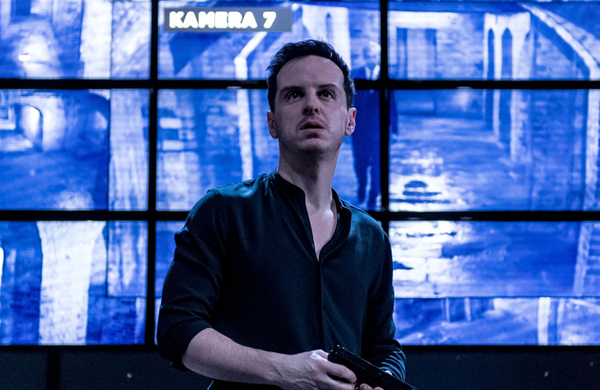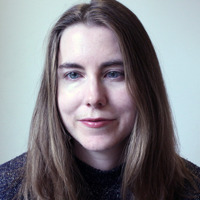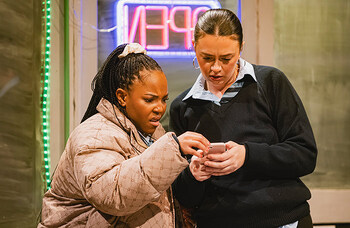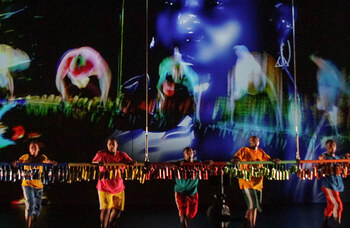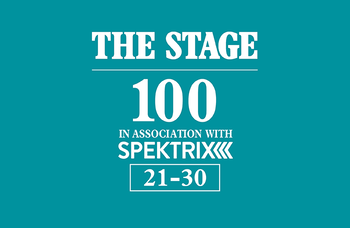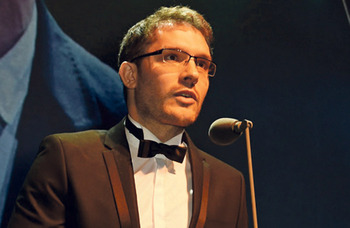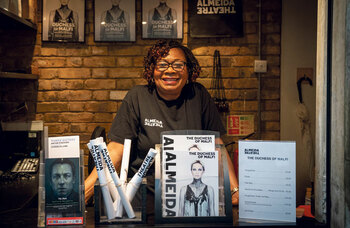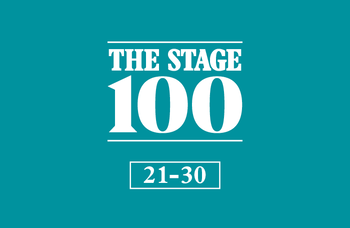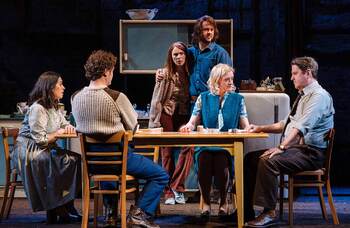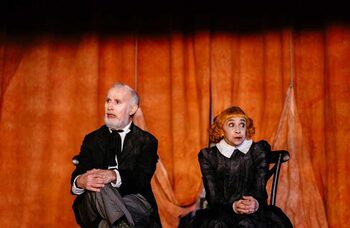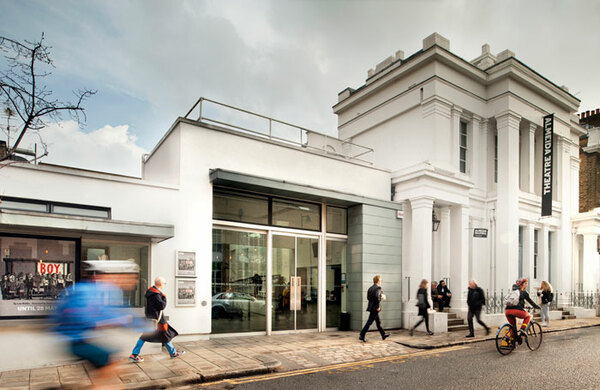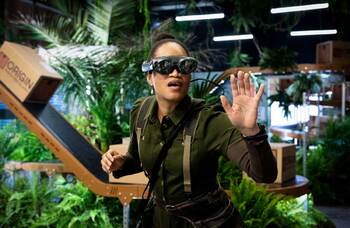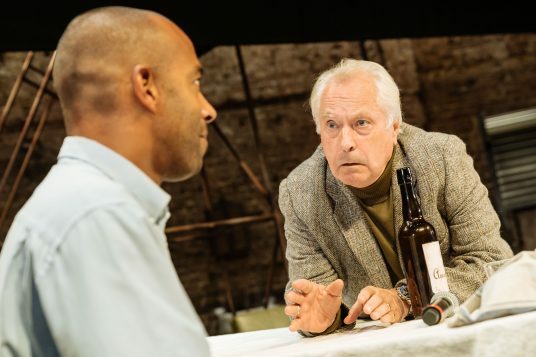
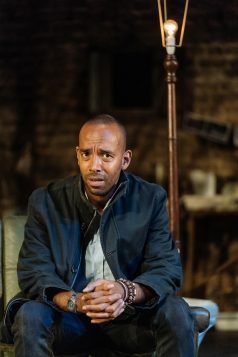
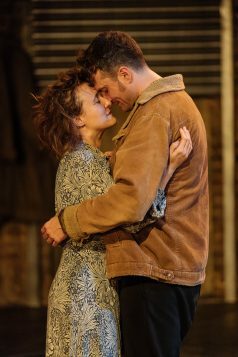
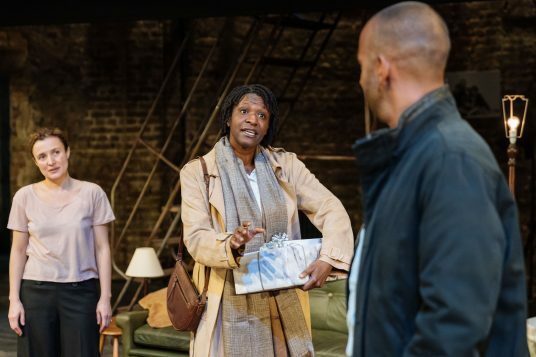
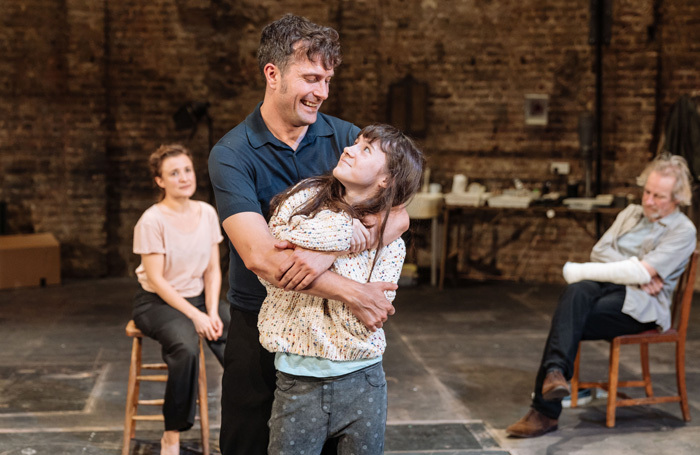
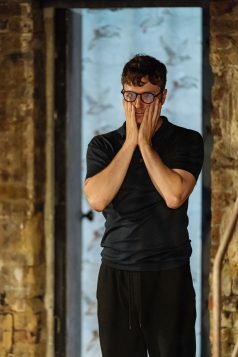
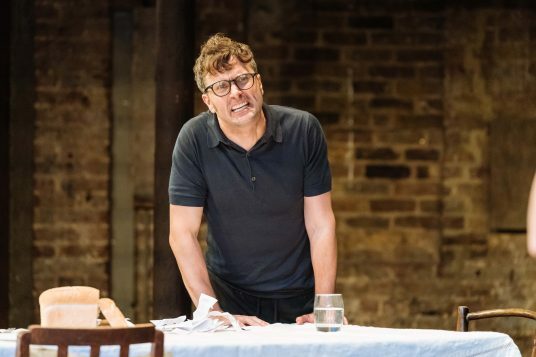








He’s done it again. Having made Hamlet feel freshly hatched, Almeida associate Robert Icke does the same for Ibsen’s 1884 play.
The production more closely resembles his Uncle Vanya than his Oresteia. There are no CCTV monitors or sliding glass doors. It’s a slow-burner. But, though three hours in length, it feels drum-tight. Every moment is considered and carefully weighted as it gradually casts a spell on the audience. Icke has a way of pinking the cheeks of canonical plays and making them breathe, as much a defibrillator as a director.
The Wild Duck opens with Kevin Harvey’s Gregory Woods standing on a bare stage, a microphone in his hand, addressing the audience directly and explaining that all stories are essentially lies. To emphasise this point, Icke has his actors occasionally break out of character to explain to the audience how the play echoes events in Ibsen’s own life – he fathered an illegitimate daughter – or to discourse on the nature of truth.
In Icke’s update, James Ekdal (Edward Hogg) and his wife Gina (Lyndsey Marshal) run a photography studio. He had bigger ambitions, but they haven’t quite panned out. The family have money troubles, but they’re essentially happy, though their daughter Hedwig (played on press night by the extraordinarily assured Clara Read) has a degenerative condition that means she will one day lose her sight. James’ dipsomaniac dad (Nicholas Farrell) keeps animals in a forest he has built in the attic – including a recuperating wild duck.
The Ekdals’ lives are entangled with those of the Woods. Gregory is James’ school friend, and his wealthy widower father Charles (Nicholas Day) was Gina’s former employer. When it’s revealed that their relationship was more than platonic, the inevitable question hangs over how consensual this could have been given his wealth and status.
Icke draws some exceptional performances from his cast. Hogg is a revelation as James – proud, vulnerable, his emotions running close to the surface. Marshal gives the production its solidity. Farrell (a magnificent Claudius opposite Tom Hiddleston’s Hamlet) is gruff, kindly and poignantly lost as Francis.
The precision of the staging is dazzling. Icke gradually builds the world of the play. The lights, bright at the beginning, slowly dim and the bare stage is subtly populated with furniture – you barely notice it happening. A black cloth masks the top half of the stage, so the Ekdals’ attic must be imagined.
While Icke reuses some familiar techniques, for example a song from the 1960s to underscore a scene of tragedy, and occasionally overcooks the play’s themes, reiterating the idea that everyone has truths they submerge beneath the surface, the production is so assured and so suffused with humanity it doesn’t matter.
The combination of the nuanced performances from the whole cast, Bunny Christie’s design, a couple of moments of genuine shivers-down-your-spine theatrical magic and a real-life actual duck make this another exceptional production from a director (and adaptor) of incredible skill and insight.
Sound designer Tom Gibbons: ‘I don’t want to get pigeonholed into a certain style of sound’
More Reviews
More about this person
More Reviews
Recommended for you
Most Read
Across The Stage this weekYour subscription helps ensure our journalism can continue
Invest in The Stage today with a subscription starting at just £7.99
